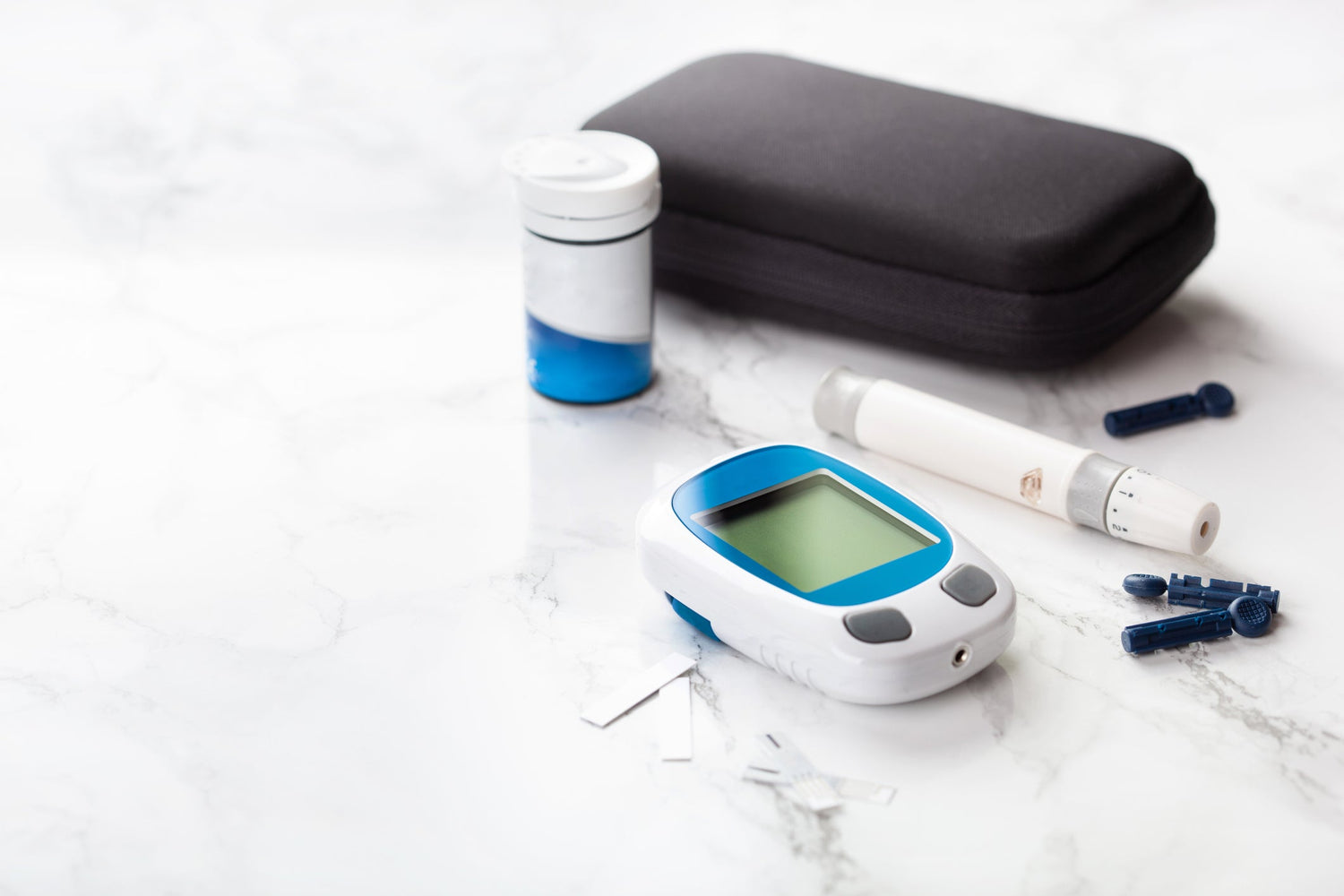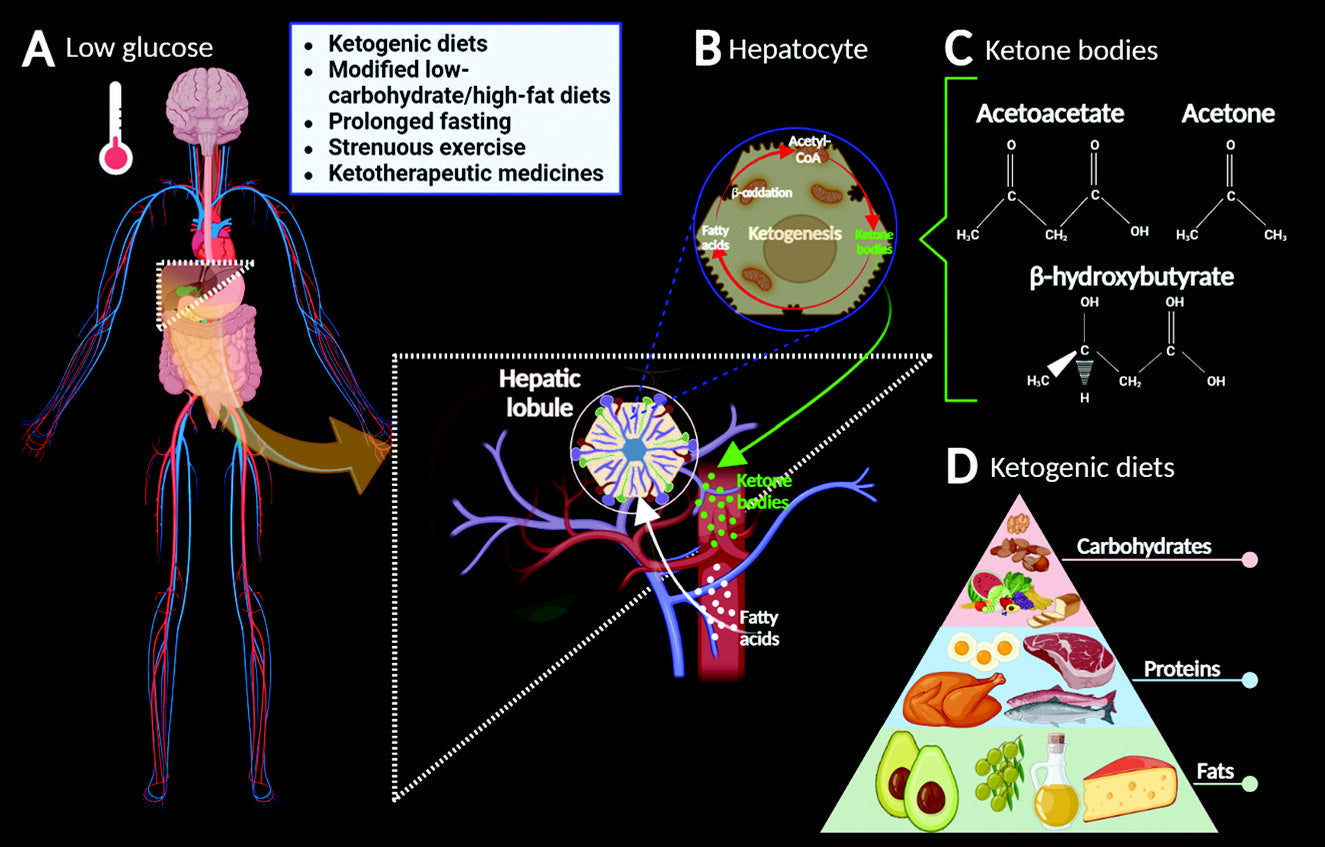How to Measure Ketone Levels
In a world increasingly focused on optimizing energy, focus and long-term health, ketones have stepped into the spotlight as a game-changing fuel. Once limited to those following intense fasting protocols or ketogenic diets, ketones are now being recognized for their broad benefits beyond diet alone—supporting brain function, metabolic balance and cardiovascular resilience.
For anyone seeking more mental clarity, smoother energy, or simply a better understanding of how their body fuels itself, learning to measure ketone levels is a smart step. Whether you're deep into biohacking, managing your wellbeing with intention, or just looking for clean energy without relying on caffeine or sugar, ketones might be your secret weapon.
And when paired with a next-generation pro-ketone like Qitone™, you don’t have to wait days for the effects of ketosis to kick in. You can see results quickly—and measure them, too. This guide walks you through everything you need to know about ketones, how to monitor them, and how to make them work for your lifestyle.
What Are Ketones?
Ketones are naturally occurring compounds produced by the liver when glucose (your body’s usual energy source) is in short supply. This shift typically happens during fasting, extended physical exertion, or when following a low-carbohydrate diet. During these states, your body breaks down stored fat into fatty acids, which are then converted into ketones, a process called ketogenesis.
There are three primary types of ketones:
- Beta-hydroxybutyrate (BHB): The most prevalent and most measurable in the blood.
- Acetoacetate (AcAc): The first ketone produced, detectable in urine.
- Acetone: A byproduct of AcAc, released through the breath.
Ketones are more than just a backup energy source. They are an evolutionarily preserved fuel, designed to support the brain and body when food is scarce. The human brain, in particular, thrives on ketones, as they cross the blood-brain barrier efficiently and deliver sustained energy without the spikes and crashes of sugar.
What Are Ketone Levels and What Do They Mean?
Ketone levels refer to the concentration of ketones circulating in your bloodstream, urine, or breath at any given time. These levels reflect your metabolic state, specifically, how deeply you are in ketosis.
In healthy adults, being in a state of nutritional ketosis usually means blood BHB levels are at or above 0.5 mmol/L. This can be achieved through dietary means, fasting or supplementation with pro-ketones.
Typical blood ketone levels fall into these ranges:
- <0.5 mmol/L: Not in ketosis
- 0.5–1.0 mmol/L: Light ketosis
- 1.0–3.0 mmol/L: Nutritional ketosis (optimal zone)
- >3.0 mmol/L: Deep ketosis, sometimes reached with fasting or taking exogenous ketones
Tracking these levels provides insight into how your body is responding to your lifestyle, diet, and supplements. For example, rising ketone levels after taking a pro-ketone powder like Qitone can validate that your body is entering a beneficial metabolic state.
Below is a breakdown of the different conditions alongside the ketone blood levels:
|
Condition |
Ketone Blood Levels |
|
Ketone levels after eating ("post-prandial") |
< 50 um/l < 0.1 mm/l |
|
Ketone levels in the morning after an overnight fast |
0.25 to < 0.5 mm/l |
|
Normal blood levels of ketones |
< 0.5 mm/l |
|
Nutritional ketosis ("Hyperketonemia") |
> 1.0 mm/l |
|
Ketones during exogenous ketone ester supplementation |
> 1.0 mm/l |
|
Ketones during and after prolonged endurance exercise |
> 1.0 - 2.0 mm/l |
|
Ketones during a keto diet |
> 4.0 mm/l |
|
Ketones during prolonged complete fasting |
6.0 – 9.0 mm/l |
|
Ketones levels at the start of ketoacidosis |
> 3.0 mm/l |
|
Ketone levels during diabetic ketoacidosis |
> 10 - 25.0 mm/l |
|
*um/l: micromole/liter; mm/l: millimole/liter *Average ketones levels from 1, 4, 6, 9, 10, 13, 17 |
|
Why You Should Measure Ketones
If you’re actively working to enhance your mental clarity, physical performance or metabolic health, measuring ketones gives you real-time feedback on your progress.
For those on a ketogenic diet, it confirms whether you're actually in ketosis. For those using exogenous ketones, such as Qitone, it verifies that your supplementation is working as intended.
But beyond validation, measuring ketones can help you:
- Understand your body’s response to specific foods, fasting windows or exercise routines
- Optimize timing and dosage of pro-ketone products
- Identify whether low energy or brain fog may be linked to insufficient ketone levels
It shifts your journey from guesswork to data-driven progress.
How to Test Ketones
There are four primary ways to measure ketones: urine, blood, breath, and physical sensations. Each has unique strengths depending on your goals and lifestyle.
Urine ketone testing
This is often the first method people try when starting out. Urine test strips detect acetoacetate, one of the initial ketones produced. You simply dip the strip in urine, wait a few seconds, and compare the color to a chart.
While inexpensive and easy, urine testing is less accurate over time. As your body becomes more efficient at using ketones, fewer are excreted in urine—even if your blood ketone levels are rising. Hydration status can also skew results.
Blood ketone testing
This method offers the most accurate, direct measurement of beta-hydroxybutyrate in the bloodstream. It involves pricking your finger, placing a drop of blood on a test strip and inserting it into a ketone meter.
Blood testing is ideal for those who want detailed insights, especially athletes or anyone using Qitone to optimize mental or physical performance. The downside is cost: test strips can be expensive and frequent finger pricking isn’t for everyone.
Breath ketone testing
Breath analyzers detect acetone, another ketone body released via respiration. This method is gaining popularity for being non-invasive and reusable, though it’s typically less sensitive than blood tests.
It’s a great option for those looking for a middle ground between ease and accuracy, and perfect for people using ketones for day-to-day cognitive support or sustained energy.
The "Feel" test
Sometimes your body tells you everything you need to know. When ketone levels rise, many people report feeling:
- Clearer-headed
- Less hungry
- More energized
- Stable in mood and focus
While not precise, being attuned to how you feel can be a valuable layer of self-awareness, especially when paired with Qitone, which delivers noticeable effects within 30 minutes.
What to Do If Your Ketone Levels Are Off
If your ketone levels aren’t where you want them to be, or if you're not feeling the benefits you expected, it doesn't necessarily mean you're doing something wrong. It might just mean your body needs support getting into that optimal zone.
This is where Qitone™ makes all the difference.
Qitone helps your body produce its own natural ketones quickly and efficiently. It contains bis-octanoyl (R)-1,3-butanediol, a novel pro-ketone compound that has been clinically shown to elevate blood BHB levels to nutritional ketosis levels within just 30 minutes. Unlike traditional supplements, Qitone delivers high-quality ketones with no unpleasant taste, no salt overload and no need to cut out carbs.
Qitone is:
- Flavorless and effortless to mix
- Designed to support the brain, heart and metabolism
- Backed by scientific research and developed in partnership with the Buck Institute for Research on Aging
If you want to feel sharper, more focused and sustainably energized, while supporting your long-term health, measuring your ketone levels is a great place to start. And with Qitone, you can elevate them with ease.
Experience the cleanest energy upgrade possible. Experience Qitone.





Leave a comment
This site is protected by hCaptcha and the hCaptcha Privacy Policy and Terms of Service apply.